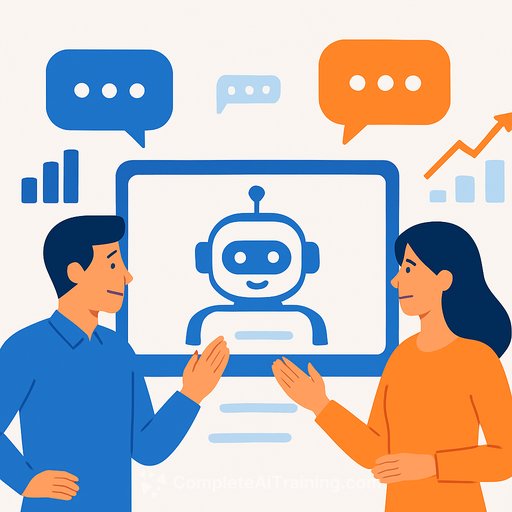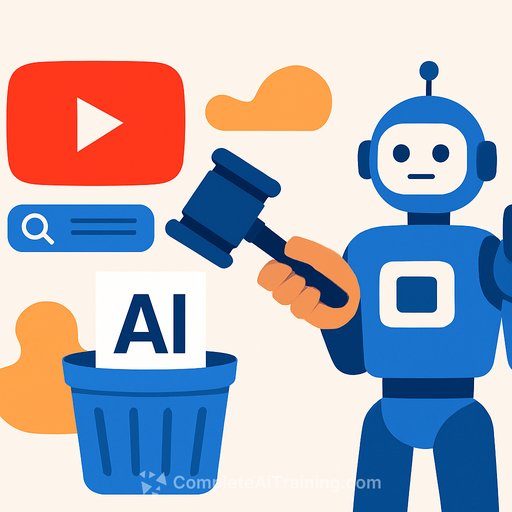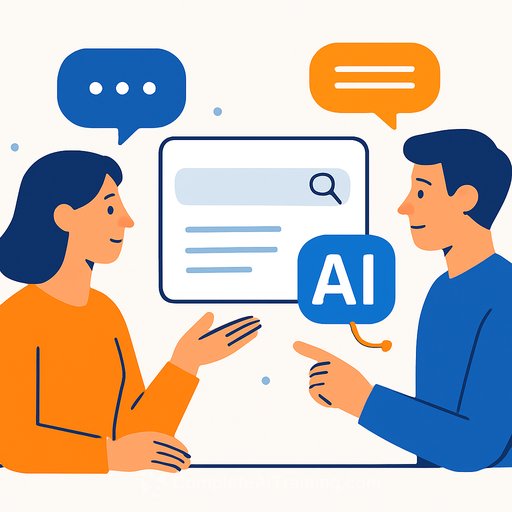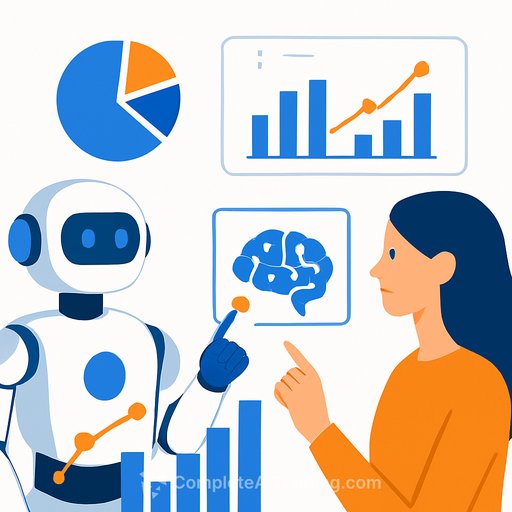Why Agentic Campaigns Aren't The Future Of Marketing
Agent-built, end-to-end campaigns sound neat. But that's still old thinking dressed up in new tools. The next era isn't about building more campaigns faster - it's about replacing campaigns with ongoing, data-fueled conversations.
The play is simple to say, hard to do: move from broadcast to continuous, from segments to individuals, from websites to wherever attention actually lives. That shift runs on data, not content volume.
What's Actually Changing Right Now
- Agentic search: AI summaries replace link lists (see Google's AI Overviews announcement).
- Ads inside chat replies: paid placements show up in conversational results (Microsoft's update).
- Social commerce: buy from within social threads without bouncing to a site.
- Agentic browsers: assistants surface shopping prompts based on user activity.
- Interactive ads: click into a chat, not a static landing page.
- Buyer agents: tools research, compare, and sometimes purchase for users.
- Conversational websites: chat-first interfaces and hyper-personalized pages.
Most of this shift hits discovery. That's where your site used to earn traffic. If discovery moves to agents and chats, your job changes: stop shouting, start responding - continuously.
Campaign Thinking Is A Crutch
Campaigns exist because we lacked the data to have real conversations at scale. Funnels are guesses about where a person might be, stitched into branching flows and content blocks.
Give a system rich, real-time data and you don't need elaborate funnels. You need logic that listens, responds, and adapts on the spot. That's not a campaign. That's a conversation.
AI-Native Marketing, Defined
- Continuous: always on, always adapting.
- Conversational: two-way by default, not broadcast.
- Collaborative: your agent and the buyer's agent talk to each other.
- Generative: dynamic narratives, offers, and experiences.
- Ethically-audited and explainable: trust and transparency are not optional.
The Hard Truth: Data Is The Constraint
AI can crank out infinite content. Without near-complete, real-time data, that content misses. Relevance dies when context lags.
So the bottleneck isn't copy or creative. It's data: collection, unification, governance, and activation - in the moment of interaction.
Your Playbook For The Next 12 Months
Skip the vanity features. Build the foundations that make conversational marketing work.
1) Build A Real-Time Data Layer
- Stream events from product, app, site, and service in seconds, not hours.
- Unify identities across devices; resolve duplicates automatically.
- Capture consent and enforce policies at activation time, not after the fact.
- Maintain a clean product catalog with structured attributes and inventory signals.
2) Make Your Offers Machine-Readable
- Expose APIs for pricing, availability, and promotions.
- Add schema to product and content pages so agents can parse meaningfully.
- Publish trust signals: reviews, guarantees, return policies, certifications.
3) Design Conversational Surfaces
- Shift spend to interactive ads that open a chat, not a static page.
- Turn your site into a chat-first experience with stateful sessions.
- Train response logic on real objections, comparisons, and use cases.
4) Prepare For Buyer Agents
- Offer agent-friendly docs: pricing rules, constraints, SLA, and support routes.
- Provide clear comparison data so agents can score you fairly.
- Automate quote-to-buy steps that an agent can complete programmatically.
5) Rethink Measurement
- Track conversation-level outcomes: qualified intent, objections resolved, handoffs.
- Attribute across surfaces you don't own (search summaries, chats, social threads).
- Score agent interactions separately from human chats.
6) Governance And Explainability
- Log prompts, responses, and decisions for audit and tuning.
- Set guardrails: policy checks, offer constraints, and bias tests.
- Show your work to users and agents: why this offer, why now.
Quarter-By-Quarter Focus
- Q1: Stand up event streaming, identity resolution, and a clean product feed. Pilot an interactive ad that opens a chat. Instrument attribution.
- Q2: Expose key APIs, add structured data, and launch a chat-first experience on your highest-intent page. Build an offer policy engine.
- Q3: Enable agent handshakes: docs, pricing logic, and programmatic checkout. Roll out real-time personalization site-wide.
- Q4: Optimize conversation flows, expand channels, and formalize governance and explainability reporting.
Why "Agentic Campaigns" Fall Short
Auto-assembling campaigns with AI still assumes a broadcast model. It makes more content, faster. It doesn't fix the missing context problem.
The advantage goes to teams who invest in data access, clean product truth, and agent-ready interfaces. Once those exist, the experience writes itself in real time.
Practical Next Steps
- Audit your data latency. Anything over 5-10 minutes is a liability for discovery and support use cases.
- Make a list of the top 20 buyer questions. Build responses that adapt to context and source.
- Pick one surface to win first: AI search, social commerce, or interactive ads. Prove lift, then scale.
If you're upgrading team skills for this shift, see the Marketing Specialist AI certification and tracks built for working marketers: view certification or browse courses by job.
Stop dragging people to your properties. Bring your capabilities to where they already are - search summaries, chats, social threads, and their own agents. Campaigns won't win that fight. Conversations will.
Your membership also unlocks:






